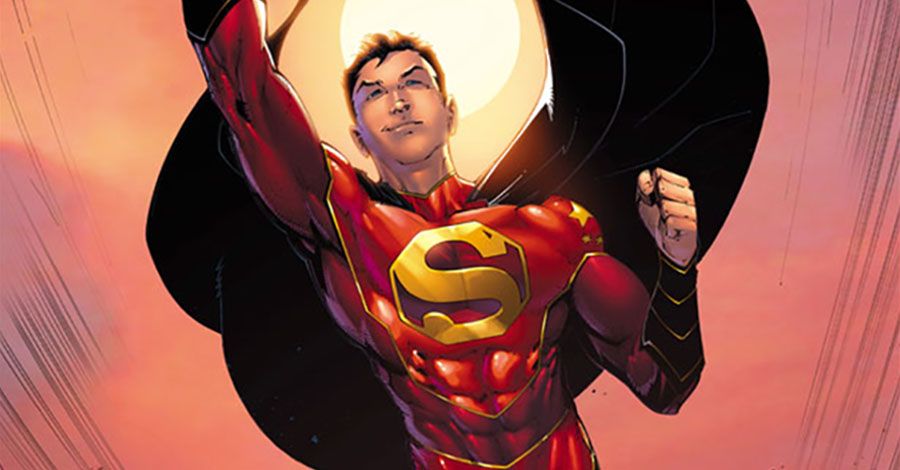Move over, Clark Kent -- there's a new Superman in town!
This summer, "Superman" scribe Gene Luen Yang and artist Viktor Bogdanovic will join forces to bring "New Super-Man" to DC Comics. Writing for DC Entertainment, Yang discussed his involved process for developing "New Super-Man's" secret identity and the meaning behind the Chinese character's name.
In his essay, Yang described his initial discomfort with the project, explaining, "My mom's family left Mainland China when she was just an infant. She spent most of her childhood in Hong Kong and Taiwan. My dad was born and raised in Taiwan. My family hasn't lived in China for at least a generation. I've only visited China twice, so my understanding of Chinese culture is through echoes."
"I would be writing about Chinese life as an outsider, but some American readers would assume that I was an insider simply because of my last name," he continued. "It seemed like a situation fraught with peril."
Regardless, he decided to take his own advice: "to read and write outside of their comfort zones." In naming the character, he established a set of parameters in order to develop an appropriate identity:
One of my first tasks as the New Super-Man writer was to give our lead guy a secret identity, a Chinese civilian name.
I thought for a while and came up with these constraints:
1. The name would need to be a plausible Chinese name.
2. The name's meaning should relate to the character's journey in some way.
3. The English version of the Chinese name should be derived using Pinyin. There are different ways of Romanizing Chinese. A lot of what we see in American Chinatowns uses a system called Wade-Giles (or is "Wade-Giles-ish"). Pinyin is now the standard in Mainland China, so that's what I want to use in the book.
4. The English version should have the initials K. K. I want to use this as a mnemonic device to help readers connect the new character to Clark Kent. I can't use C. K. because there is no hard c in Pinyin. The Pinyin c is pronounced "ts," like in "cats."
5. The English version should be immediately pronounceable by American readers who haven't studied Pinyin. This means I have to avoid certain letters like x (pronounced kind of like "sh" in Pinyin) and q (pronounced kind of like "ch").
6. The Pinyin version cannot sound Japanese.
Constraint #6 was added later in Yang's process, as the name he initially came with bordered too closely to a popular Japanese name. "What would I think if I were a casual comics reader and I encountered an Asian super hero named Kenji Kong as a supporting character in a couple panels of a DC comic, without any context for the name?" he asked himself. "I'd probably assume some non-Asian writer had confused Asian cultures. I was only thinking about how I'd make this character and his name work in the particular story I was going to write... I had to change the name."
As such, he went back to the drawing board, which led him to the character's official secret identity:
å”å…‹å— Kenan Kong
å— Nan means "south." Appropriate for a kid from Shanghai, since folks from Beijing like to call folks from Shanghai "Southerners."
å…‹ Ke means "to overcome." What could be more Super-Man than "to overcome"?
Kenan isn't quite as easy to pronounce (in Chinese, it's closer to "Ken Ann" than "Key Nan"), but it's pronounceable enough. And it definitely satisfies constraint #6.
For more on Yang's "New Super-Man," check out his full blog post on DCComics.com.
"New Super-Man" #1 goes on sale July 13.

